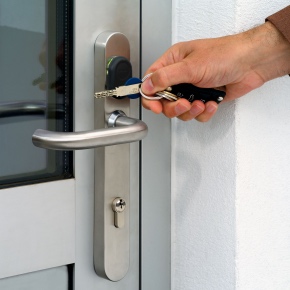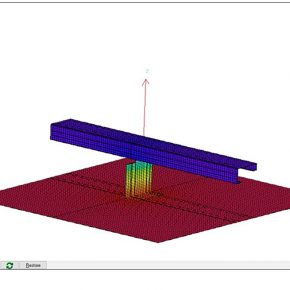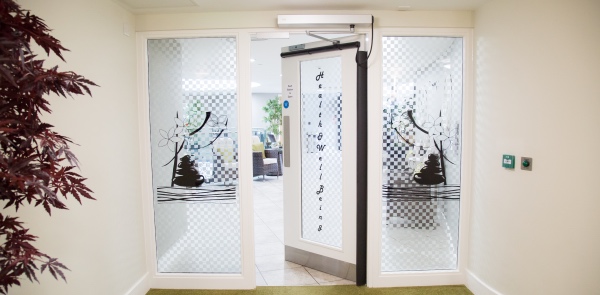
‘Keep it turning’ – The dangers of not maintaining door systems
Paul Wright, Service Director at dormakaba explains why planned door maintenance and servicing is vital to ensure systems and access solutions continue to work safely, effectively and remain compliant with building regulations.
When budgets are tight, it can be tempting to postpone or disregard what is perceived as non-essential planned maintenance and servicing. However, when it comes to door solutions, planned services are absolutely crucial.
Legislative compliance
Should a manual door not be maintained properly, it can stick, become noisy, slam shut, operate too slowly or fail to close fully. This can then become a security issue and should the door in question be a fire door – it is potentially deadly.
 Under the Regulatory Reform Act 2005 and BS8214 fire doors, (and any other equipment provided in connection with firefighting, fire detection and warning as well as emergency routes and exits), should have a maintenance schedule and be examined every six months by a competent person. This will ensure system reliability in an event of a fire and keep the building safe.
Under the Regulatory Reform Act 2005 and BS8214 fire doors, (and any other equipment provided in connection with firefighting, fire detection and warning as well as emergency routes and exits), should have a maintenance schedule and be examined every six months by a competent person. This will ensure system reliability in an event of a fire and keep the building safe.
In addition, for manual doors building regulations also state that, “…a door must have an opening force of below 30N between 0 and 30 degrees and below 22.5N between 30 and 60 degrees…” Without regular maintenance of all door fittings the resistances to opening and closing can increase to an extent that the ability of people to pass through the door may be affected. This means that the system would be in direct violation of the 2010 Equality Act. Consequently, the building owner could then be liable for not ensuring ease of access for all users.
Automatic doors are regulated by BS EN 16005:2012, Power Operated Pedestrian Doorsets – Safety in Use. This means that automatic doors, including their protective devices, sensors, safety systems and equipment have to be regularly maintained according to the manufacturer’s specification by a qualified engineer at least once a year; records of maintenance must also be kept in order to meet legal responsibilities. Failure to regularly service automatic doors could put the health and safety of building users at risk, and if systems fail, can cause closure and downtime.
Access solutions
Access control solutions, if faulty, can also affect the complete building and its overall security. The British Security Industry Association’s (BSIA) guide to access control systems can provide vital best practice guidance.
When maintaining an access solution, a Service Level Agreement (SLA) should be agreed with a qualified maintenance provider, this should include a preventative maintenance schedule (at least once per annum) detailing what is to be tested, including an audit of cards, badges or ID media, alarm inputs and responses, uninterrupted Power Supplies (UPS) batteries as well as response and repair times expected.
For software-based systems, most manufacturers will offer a Software Support Agreement (SSA). This will allow your system integrator to maintain the software to the latest version available, which will provide the latest features but will most importantly also allow compatibility and testing with the latest release of operating systems on the market.
Reducing risk and long-term costs
By regularly servicing door systems, in accordance to the relevant health and safety legislation and British Standards, expensive repairs and replacements can be pre-empted and business downtime of inactive doors can be reduced. Regular maintenance can also improve the system’s life expectancy by ensuring that all variables are working correctly. This will also help to avoid components experiencing wear from over-compensation that over time could result in expensive repair work or an entirely new system.
There really is a multitude of factors to take into account when it comes to the correct specification and long-term maintenance of doors and servicing of access control systems. As such, it is advisable to select products from a reputable manufacturer, have a qualified installer undertake the work and take advantage of the benefits a service partner can provide.
Latest news

26th July 2024
Enfield Speciality Doors completes world-class project for Atlas Copco HQ
A rundown office and warehouse building completely transformed into a modern headquarters for Atlas Copco has been fitted with more than 120 internal fire doors from Enfield Speciality Doors.
Posted in Access Control & Door Entry Systems, Articles, Building Industry News, Building Products & Structures, Building Systems, Case Studies, Doors, Interior Design & Construction, Interiors, Posts, Restoration & Refurbishment, Retrofit & Renovation, Security and Fire Protection, Sustainability & Energy Efficiency, Timber Buildings and Timber Products, Wooden products
26th July 2024
Abloy UK launches new white paper
Abloy UK, a leading provider of security and access control solutions, has launched a new white paper.
Posted in Access Control & Door Entry Systems, Architectural Ironmongery, Articles, Building Industry News, Building Products & Structures, Building Services, Doors, Facility Management & Building Services, Health & Safety, Information Technology, Innovations & New Products, Publications, Research & Materials Testing, Security and Fire Protection
26th July 2024
MCRMA Member Profile: David Roy, Director of Roofconsult
David Roy of MCRMA member company Roofconsult has more than 50 years’ experience to draw upon working in the building envelope sector and a unique perspective on how it has changed in that time.
Posted in Articles, BIM, Infrastructure & CAD Software, Building Associations & Institutes, Building Industry News, Building Products & Structures, Building Services, Building Systems, Cladding, Information Technology, Restoration & Refurbishment, Retrofit & Renovation, Roofs, Walls
26th July 2024
Strand: Enhancing Door Functionality and Safety
Craig Fox, Sales Director for Strand Hardware, outlines how door industry professionals might apply door limiting stays…
Posted in Architectural Ironmongery, Articles, Building Industry News, Building Products & Structures, Building Services, Doors, Facility Management & Building Services, Health & Safety, Restoration & Refurbishment, Retrofit & Renovation
 Sign up:
Sign up: 